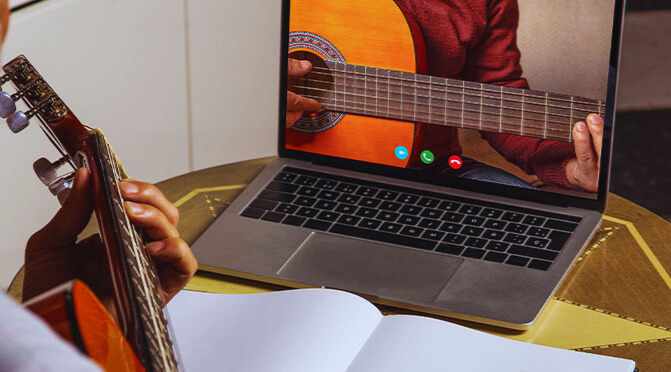
Music is a powerful form of expression that connects people across cultures and generations. However, not everyone has had equal access to quality music education. Traditional music lessons often require access to a local teacher, costly instruments, or time-consuming commutes. Today, online music classes are transforming that reality—breaking down these barriers and making learning music more convenient, affordable, and inclusive.
Let’s explore how online music classes are opening doors for aspiring musicians everywhere.
1. Learn Music from Anywhere in the World
The most significant advantage of online music classes is location independence. Whether you live in a bustling city or a quiet rural town, you can now access expert instructors from across the globe. All you need is a reliable internet connection and a device.
A student in a remote area who once struggled to find a local piano teacher can now take piano lessons with a conservatory-trained pianist online. This global access makes it possible for learners of all backgrounds to receive professional guidance without leaving home.
2. Flexible Learning for Busy Lifestyles
Life gets busy—between work, school, and family, it can be tough to find time for personal hobbies. Online music classes offer flexible scheduling that works around your life. Many platforms allow students to book lessons during evenings, weekends, or even lunch breaks. Additionally, some platforms provide on-demand video lessons that students can watch at their convenience.
This flexibility makes it easier for adults, teens, and even kids to keep up with their musical goals, no matter how packed their schedule might be.
3. More Affordable Than Traditional Lessons
Traditional music education can be expensive. Private tutors often charge high hourly rates, and you might also need to cover travel expenses and learning materials. In contrast, online music classes tend to be more budget-friendly.
Many websites offer monthly subscriptions, discounted package deals, or even free introductory lessons. Plus, since everything is digital, there's no need to purchase extra textbooks or printed sheet music—everything can be downloaded or accessed online.
4. Wide Range of Instruments and Styles
Unlike a local music school that may only offer piano or guitar, online music classes cover a wide variety of instruments and genres. From ukulele to violin, beatboxing to blues singing, the options are virtually endless.
This variety allows students to explore different styles of music without committing to one forever. Want to dabble in jazz piano, try classical singing, or learn how to produce electronic music? You can do it all online.
5. Inclusive for All Ages and Skill Levels
Whether you're a complete beginner or an advanced musician, there’s something for everyone in the world of online music classes. Children, teens, adults, and seniors can all benefit from tailored lessons suited to their skill level and learning pace.
Online platforms also cater to people with disabilities, offering features like closed captions, screen readers, adjustable playback speeds, and personalized feedback. This inclusivity ensures that everyone has the opportunity to learn music in a way that works best for them.
6. Interactive Tools Enhance the Experience
Many online music classes now include high-tech features that enhance the learning process. Interactive sheet music, virtual keyboards, rhythm trainers, and real-time feedback tools make practice more engaging and effective.
Live video sessions with teachers allow for instant feedback, just like in-person lessons. Some platforms even use AI to detect pitch and rhythm accuracy, providing learners with data-driven insights on how to improve.
7. Building a Global Music Community
Learning music online doesn’t have to be a lonely journey. Most online music classes come with access to student communities, forums, or social groups where learners can connect, ask questions, and celebrate each other’s progress.
These online communities foster motivation, collaboration, and friendship among learners from different parts of the world. It’s not uncommon to find virtual recitals or group practice sessions happening across continents.
8. Encouraging Lifelong Learning
Thanks to the flexibility and affordability of online music classes, more adults are rediscovering their love for music. Many who gave up lessons as children are now returning to their instruments or picking up new ones.
The digital format removes the intimidation factor and lets learners move at their own pace. With no age limit or pressure, people can now enjoy music as a lifelong passion, not just a childhood hobby.
Final Thoughts: Online music classes are not just a trend—they're a transformative shift in how people learn and experience music. By removing geographical, financial, and physical barriers, they make music education more inclusive and accessible for everyone.
Whether you're a beginner picking up your first instrument or an experienced musician looking to sharpen your skills, online music classes offer an incredible opportunity to learn, grow, and connect through music.
So why wait? Your journey to musical discovery might be just one click away.


Write a comment ...